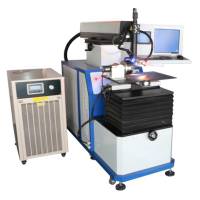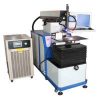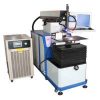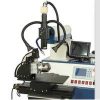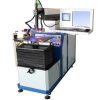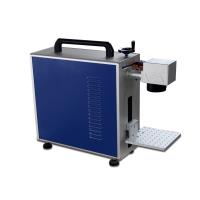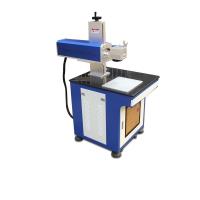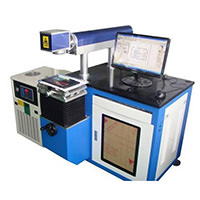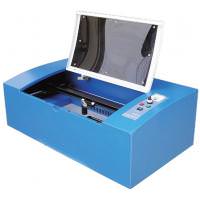Laser welding machine TST-W100J
Description
Additional information
| Laser source | Nd+3:YAG crystal |
| Laser wavelength | 1064 nm |
| Output power | ≤200W |
| Working area | 200×200 mm (optional up to 1200×1200) |
| Weld depth | 1 .0mm |
| Laser pulse width | 0.1~20ms |
| Repetition rate | 1~50Hz |
| Laser spot diameter | 0.2-3.0mm |
| Max. pulse energy | 60J |
| Electro-optical conversion rate | ≤4% |
| Continuous operation time | >24 hours |
| Laser generator size | 1600 mm x 800 mm x 1500 mm |
Description
Laser welding is the latest versatile process for welding thin materials and high quality components for spot and seal welding, butt and butt welding. The laser beam forms a concentrated heat source, which achieves a narrow, deep weld, high welding speeds, low configuration distortion, a small heating zone and high process productivity. With the high quality of laser welding, there is no need for re-processing. In terms of power and strength, welds are not inferior and even surpass a number of materials. The TST-W200 machine has a number of advantages – the laser emitter is made according to British technology using original British materials, which allows you to get high beam quality, constant power and, as a result, excellent welding quality. The intelligent laser control system is convenient to operate and prevents operator error and overheating. The platform can move in three axes.
• Accurate positioning thanks to two systems – red beam and camera
• Small spot of laser beam, adjustable as required
• Precision control
• Ease of automation and robotization of the process
• Possibility of welding
Materials used:
• Steel for molds
S136, SKD-11, NAK80, 8407, 718, 738, H13, P20, W302, 2344, etc. .
• Common carbon steel and alloys
In general, laser welding of carbon steel has good results, the quality depends on the composition of the impurity. As with other welding processes, substances such as sulfur and phosphorus are factors of increased sensitivity to weld cracking. For normal warm-up and to obtain a satisfactory welding quality, the carbon content should exceed 0.25%. To ensure a good connection when welding various carbon steels, the welding torch can be slightly offset in the direction of the low carbon material. Low carbon boiling steel with high sulfur and phosphorus content is not suitable for laser welding. Low carbon, calm steel with low levels of impurities gives good welding results. Medium and high carbon as well as ordinary steel are well amenable to laser welding, but heating occurs and additional processing is required to relieve stress and prevent cracks;
• stainless steel
Under normal circumstances, by laser welding stainless steel, quality joints are even easier to obtain than with conventional welding. Due to the high welding speed, the hot zone is very small and increased sensitivity to heat does not become a problem. Compared to carbon steel, it is easier to obtain a narrow, deep-penetrating weld on stainless steel with its low thermal conductivity;
• laser welding of various metals
with a variety of metals having different melting points, create favorable conditions for material compatibility.
The following combinations of metals provide a smooth, deep penetration laser weld: stainless steel – low carbon steel, 416 stainless steel 310 stainless steel, 347 stainless steel ~ HASTALLY nickel alloy, electrode nickel – cold forged steel, different nickel content in the compounds of two metals, titanium, nickel, tin, copper, aluminum, chromium, niobium, gold, silver, other metals and their alloys, steel, cobalt-nickel and other alloys of the same material between itself, it is relatively difficult to weld non-ferrous metals, copper and silver alloy, it is difficult to use the connection copper – nickel, nickel – titanium, copper – titanium, titanium – molybdenum, brass – copper, mild steel – copper, as well as welding between other dissimilar metals.
Equipment
1. foot switch 2. welding wire 200m 3. set of seals 4. backlight 5. goggles 6. magnetic holder 7. rotary device 8. camera with monitor
